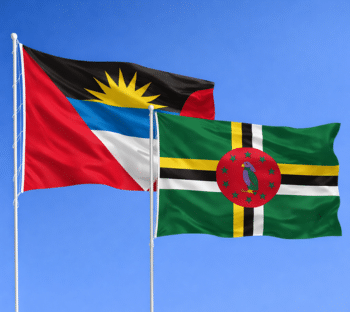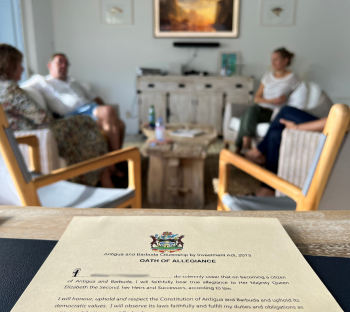Dual citizenship has grown in popularity in the last few decades. Globalization, political uncertainty, and health emergencies are not the only factors driving demand.
Countries are recognizing the economic advantages of dual citizenship as they amend their citizenship laws and create pathways for other nationalities to acquire second citizenship. This explains the popularity of citizenship for investment countries.
Exactly how beneficial is it to become a dual citizen? Does dual citizenship mean dual tax payments, too? How does second citizenship by investment compare to other pathways?
Consider the pros and cons of dual citizenship presented in this post.
The Pros
Dual citizens enjoy the privileges and benefits of both countries. The pros encompass quality of life, safety and security, global mobility, and financial opportunities.
Quality of Life
Some countries can offer their citizens better healthcare since their facilities may be equipped with state-of-the-art equipment. This can also mean innovative treatments.
Other countries not only provide advanced medical care but also government-subsidized healthcare. Dual citizenship gives individuals access to excellent and (in some places) universal healthcare.
Greater options for education are also a considerable benefit for people seeking a dual nationality. Countries with exceptional educational institutions and higher standards provide their citizens with greater opportunities in life.
Safety and Security
Amid global uncertainties, safety and security become paramount concerns.
The effectiveness of a country’s law enforcement and its overall stability assures citizens of their well-being and protection. By ensuring the safety and security of their citizens, the world’s safest countries also secure high levels of wealth and promote social welfare.
Global Mobility
Expanded travel is perhaps one of the more popular advantages of dual nationality; that you can travel where you need to be or where you want to go is the ultimate privilege.
As a dual citizen, you can travel with ease and have visa-free access to several countries. Which countries those are and how many will depend on which country you’ve picked for a second citizenship.
With Caribbean citizenship by investment, for instance, visa-free travel varies among the different islands. For Antigua and Barbuda, you can travel freely to over 150 countries, whereas with a St. Kitts and Nevis citizenship, you can have visa-free entry to over 130 countries (including Russia).
Financial Opportunities
Quality of life, safety and security, and global mobility all lead to greater financial opportunities. You can conduct business in several countries that have trade agreements with your two countries, allowing you to expand your market in favorable environments for startups or investments.
For some dual citizens, the financial opportunities can come in the form of real estate. After all, this is how many of the world’s billionaires have made their wealth.
In regions like the Caribbean, where tourism yields substantial economic activities, property investment is a big draw. An investment in Caribbean real estate can create a successful pathway for a second citizenship application.
The Cons
The rights and privileges of dual citizenship come with responsibilities.
What those are will depend on where you have chosen to get a second citizenship. In general, the responsibilities encompass tax and military obligations.
Double Taxation
Dual citizens tend to pay double taxes in countries that have laws on foreign income or property taxes. The risk of double taxation becomes greater when the two countries have no double taxation agreement. A tax treaty prevents you from being taxed twice on the same income.
Worldwide, about 3,000 double tax agreements exist among countries. These include the UK, US, and UAE.
Some countries, like St. Lucia, have low to no income tax even for worldwide earnings. Other countries, like Antigua and Barbuda, do not impose capital gains or estate taxes, which allows a dual citizen to preserve wealth.
Military Obligations
Some countries have an established national service that imposes mandatory military service upon a certain age, even for dual nationals.
A complication will arise if the other country does not allow its citizens to serve in a foreign military. If this is the case with your dual citizenship, there is a risk of losing your citizenship status with one of the countries.
Limited Career Paths
Some countries limit access to sensitive career opportunities. Government jobs, for example, may be limited for people with dual citizenship because of national security reasons.
Complicated Process
A dual citizenship application can be a lengthy and complicated process unless it’s a birth citizenship. Children born in countries with birthright citizenship or to parents who are dual nationals automatically receive citizenship.
You can gain dual citizenship through marriage, naturalization, descent or ancestry, or by investment. Citizenship by investment has become a more manageable pathway to acquiring a second passport.
Economic citizenship typically has shorter processing times than traditional pathways. Professional assistance, however, can streamline the process even more and provide expert guidance that allows you to choose the best options.
Dual Citizenship in the Caribbean
Caribbean citizenship is one of the most valuable and sought-after second citizenship.
In comparison to other countries with investment programs, the Caribbean presents affordable minimum investments, shorter processing times, and attractive tax incentives.
Citizens International works directly with the government and partners on the ground to ensure that every application is on track.
Book a free consultation today.


